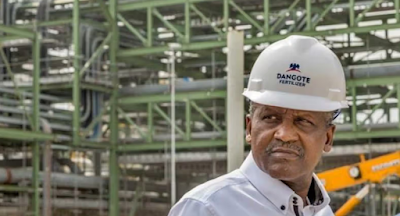Hepatitis includes five types: A, B, C, D, and E. In the WHO African Region, over 70 million people suffer from chronic hepatitis B or C, but fewer than 10% are diagnosed or treated. Nigeria, with 325,000 new infections in 2022, ranks third globally in hepatitis prevalence.
Chronic hepatitis B and C can lead to liver damage and cancer, even though they are preventable, treatable, and, in the case of hepatitis C, curable.
This year’s theme, ‘Hepatitis: Let’s Break It Down,’ calls for action to remove financial, social, and systemic barriers, including stigma, that prevent hepatitis elimination and liver cancer prevention.
For 2025 World Hepatitis Day, WHO joined the Ministry of Health and Social Welfare and its partners to mark the occasion with a ministerial press briefing at the Federal Secretariat, and launched a three-day hepatitis B screening, on the stop vaccinations for those who test negative, and linkage to treatment programme for those who test positive at the National Assembly Complex in Abuja.
The event at the National Assembly in Abuja brought together health officials, legislators, and the public to address the issue of hepatitis.
Addressing journalists at the press briefing, the Minister of Health and Social Welfare, Professor Mohammed Pate, represented by Dr Godwin Ntadom, Director Public Health Department, FMOH, reiterated Nigeria’s commitment to combating hepatitis.
He noted that the burden and cost of hepatitis treatment in the country is still very high and, as such, has a huge economic impact on the country and called for collective action in eliminating the disease.
Dr Ntadom said, “hepatitis costs Nigeria between ₦13.3 trillion and ₦17.9 trillion annually in direct and indirect costs.
He also announced, ‘Project 365,’ a nationwide campaign aimed at eliminating Hepatitis C and halting Hepatitis B transmission by 2030.
“The project will support the ongoing efforts to eliminate mother-to-child transmission of HIV, hepatitis, and STIs, alongside expanding local pharmaceutical manufacturing through funding, the establishment of the Viral Elimination Fund, tax incentives, regulatory reforms, and legislative support.
Nigeria must no longer hold the third-highest hepatitis burden globally. We have the science, we have the strategy, and we will act together, boldly and urgently, toward a hepatitis-free Nigeria, he said.
WHO’s Acting Representative in Nigeria, Dr Alex Gasasira, represented by Dr Mya Ngon, cluster lead for Universal Health Coverage (UHC) Communicable and Noncommunicable Diseases (NCDs) praised Nigeria’s triple elimination initiative for HIV, hepatitis, and STIs, and emphasized the importance of reducing treatment costs, boosting local production, and expanding screening to achieve healthcare equity.
WHO urges Nigeria and other nations to:
• Ensure hepatitis B vaccination within 24 hours of birth;
• Integrate hepatitis testing and treatment into primary healthcare services;
• Address stigma and misinformation;
• Secure sustainable domestic funding for hepatitis programs; and
• Protect the rights of individuals living with hepatitis, especially in healthcare and employment.
She reiterated WHO’s commitment to supporting Nigeria’s efforts to strengthen its health systems and expand access to affordable diagnostics, vaccines, and treatments.
A beneficiary of the screening, Fash Yommie, 53, from Abuja, shared that he took the test to know his status.
“I took the test to know my status, and I am relieved to have tested negative. I now understand the importance of hepatitis prevention. I will start taking precautionary measures, such as avoiding sharing needles and ensuring proper hygiene with food and water, to protect myself and my loved ones from infection. I encourage everyone to get tested and vaccinated, as early detection is key to preventing this disease.
"Early detection and vaccination are crucial in preventing the spread of hepatitis. Hepatitis B is transmitted through contact with infected blood or fluids, hepatitis C via blood-to-blood contact like sharing needles, and hepatitis A and E through contaminated food or water.
Nigeria has enhanced hepatitis B prevention by adding the vaccine to the national schedule, supported by WHO, Gavi, UNICEF, and partners, to vaccinate all newborns and children and reduce early transmission.
This year’s activities reflect the broader goal of integrating hepatitis services into Nigeria’s primary healthcare system, making screening and treatment more accessible to vulnerable populations.
The National Assembly event is part of WHO's ongoing collaboration with Nigeria to achieve universal health coverage and align with the 2030 Global Health Agenda. Through national and local partnerships, WHO supports Nigeria in reducing the hepatitis burden and improving public health outcomes. The three-day screening serves as a reminder that hepatitis is preventable, and everyone has a role in raising awareness and preventing its spread.









